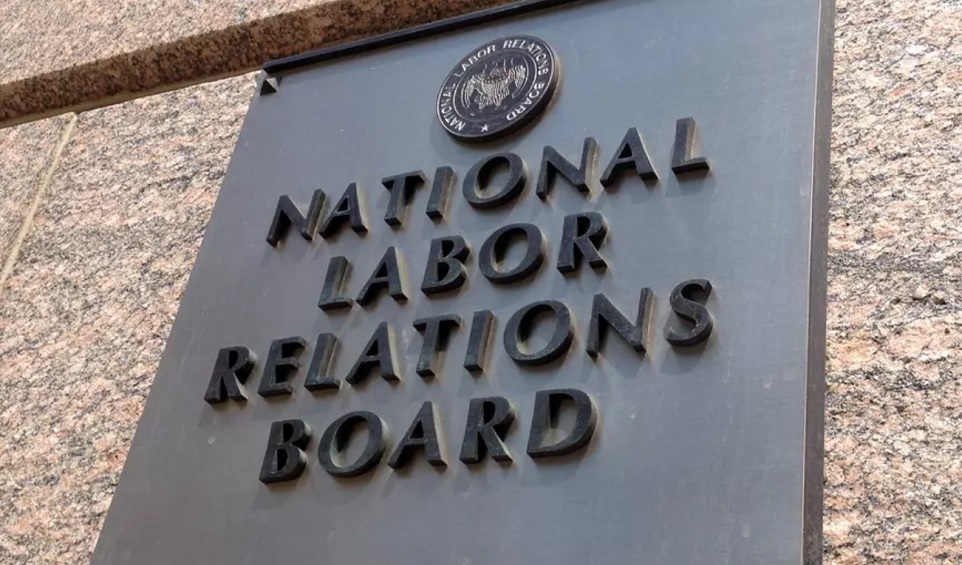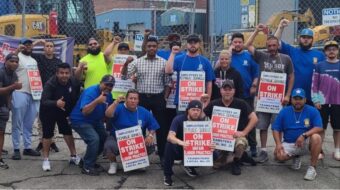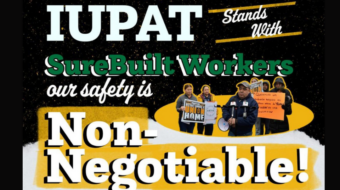
WASHINGTON —By a 3-1 party-line vote, the National Labor Relations Board liberated millions of gig economy workers, construction workers, home health care aides, and Uber and Lyft drivers—among others—from unchallengeable corporate control by ruling they’re “employees” under labor law and thus can unionize and deserve other worker rights and protections, too.
The decision, authored by board chair Lauren McFarren, reverses a Trump-era NLRB ruling which widened bosses’ ability to say the affected workers are “independent contractors” who can’t unionize or otherwise protect themselves.
This NLRB ruling restores prior factors the board used to determine if labor law, including the right to unionize, protects those workers.
“Employer misclassification of workers as independent contractors robs workers of labor rights and threatens their economic security,” Economic Policy Institute President Heidi Shierholz wrote in a report earlier this year.
“Not just gig workers and journalists are harmed by employer misclassification. Nail salon workers, truck drivers, and construction workers are among the most impacted occupations. Allowing employers to exploit loopholes in labor law puts these workers at greater risk,” added Shierholz.
The decision particularly elated Service Employees President Mary Kay Henry, whose union represents home health care aides—those whose “employer,” even if it’s an individual or a family, is paid through the state or by a licensed agency. The NLRB’s ruling will let labor law cover hundreds of thousands more workers, who can organize.
The board’s “ruling is a victory for frontline workers who have been fighting for the right to unionize for years & gives more workers, regardless of where they live or who signs their paycheck, the ability to collectively bargain for a better workplace,” Henry cheered.
Shierholz calculated the typical misclassified construction worker not only lost out on unionizing but on minimum wages, overtime pay, workers’ comp, and jobless benefits. The total loss was $16,729 yearly. Misclassified workers also must pay both the worker’s and the employer’s share of Social Security and Medicare payroll taxes.
The typical misclassified home health care aide, toiling in one of the lowest-paid occupations in the U.S., and usually a woman of color and often a migrant to the U.S., would lose union rights and $9,529 yearly in wages and benefits, Shierholz added.
The Trump-era ruling calls a worker an “independent contractor” solely on “entrepreneurial opportunity” for outside income, not on whether whoever hired the worker controls wages, hours, working conditions, uniforms, products, or anything else. This decision restores those factors.
The practical impact of the Trump regime’s NLRB Republicans’ ruling was to ban labor law coverage from millions of workers and throw the door wide open to the “independent contractor” dodge bosses used to deny them workers’ rights.
This decision slams the door again.
The Trump-era ruling “can’t be squared with common law, Board precedent” or U.S. Supreme Court rulings, McFadden and the board’s Democratic-named majority wrote in the case pitting the Atlanta Opera against Theatrical and Stage Employees Local 798.
“Entrepreneurial opportunity would be taken into account, along with the traditional common-law factors, by asking whether the evidence tends to show a supposed independent contractor is, in fact, rendering services as part of an independent business,” McFarren added.
The opera’s makeup artists and hairstylists, mostly woman workers of color, wanted to unionize with the local. The Opera’s bosses argued they were independent contractors with an “entrepreneurial opportunity” to make money on their own, and couldn’t unionize.
“In reviewing the facts of this case…the board determined the majority of the traditional common-law factors point toward employee status. The board also determined the evidence did not show the stylists rendered services as part of their own independent businesses.”
“We are thrilled with this decision and humbled at its impact in the fight against misclassification of workers,” Local 798 tweeted.
“Can we also get our union votes recognized as well? Health insurance and retirement sure do make for a better Hair & Makeup crew! XOXO” their second tweet read, followed by two positive emojis.
We hope you appreciated this article. At People’s World, we believe news and information should be free and accessible to all, but we need your help. Our journalism is free of corporate influence and paywalls because we are totally reader-supported. Only you, our readers and supporters, make this possible. If you enjoy reading People’s World and the stories we bring you, please support our work by donating or becoming a monthly sustainer today. Thank you!










